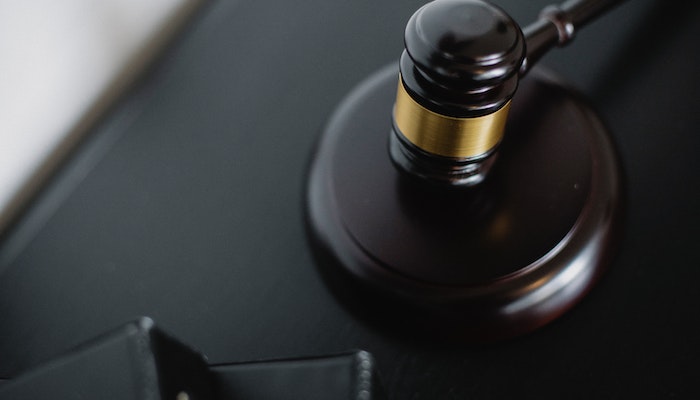Have you been injured due to someone else’s negligence in Chicago, Illinois? If so, you may be entitled to compensation. Hiring a personal injury lawyer can help you navigate the complex legal process and ensure you receive the compensation you deserve. This article will discuss the ins and outs of personal injury law, the reasons to hire a personal injury lawyer in Chicago, and how to choose the right one for your case.
What is Personal Injury Law?
A. Definition of Personal Injury Law
Personal injury law, or tort law, deals with legal disputes arising from an injury to a person’s body, mind, or emotions. Personal injury law aims to provide financial compensation to the injured party for their losses and hold the responsible party accountable for their actions.
B. Types of Personal Injury Cases
There are numerous types of personal injury cases, including:
- Car accidents
- Medical malpractice
- Slip and fall accidents
- Defective products
- Workplace accidents
- Dog bites
Why Hire a Personal Injury Lawyer in Chicago, Illinois?
A. Legal Expertise
Personal injury lawyers have the legal expertise to help you navigate the often confusing and complex world of personal injury law. They know the ins and outs of the legal process, including the necessary paperwork and deadlines, and can help protect your rights.
B. Experience with Local Courts and Laws
A local personal injury lawyer in Chicago will have experience dealing with the specific laws and regulations that apply to your case. They will also have relationships with local judges and court staff, which can be advantageous when navigating the legal system.
C. Negotiating Skills
Personal injury lawyers are skilled negotiators who can help you secure the best possible settlement for your case. They know how to value your claim accurately and can effectively communicate with insurance companies and opposing counsel to ensure you receive fair compensation.
How to Choose the Right Personal Injury Lawyer
A. Reputation and Track Record
When choosing a personal injury lawyer, it’s essential to research their reputation and track record. Look for a lawyer with a history of successful outcomes in cases similar to yours. Online reviews and testimonials can provide valuable insight into a lawyer’s performance and client satisfaction.
B. Communication and Availability
An excellent personal injury lawyer should be accessible and responsive to your needs. They should be available to answer your questions and provide regular updates on the progress of your case. Make sure to choose a lawyer who takes the time to listen to your concerns and communicates clearly and effectively.
C. Fees and Payment Structure
Most personal injury lawyers work on a contingency fee basis, meaning they only get paid if they win your case. Discuss fees and payment structures upfront to ensure you understand how your lawyer will be compensated.
The Process of a Personal Injury Claim
A. Initial Consultation
During the initial consultation, your personal injury lawyer will evaluate your case, discuss your legal options, and explain the next steps in the process. This meeting allows you to ask questions and determine if the lawyer is a good fit for your needs.
B. Investigation
After the initial consultation, your lawyer will begin investigating your case. This may involve gathering evidence, interviewing witnesses, and reviewing medical records to build a strong case on your behalf.
C. Filing a Lawsuit
If you can’t come to a fair agreement through negotiations, your lawyer might suggest taking legal action. This involves drafting and filing a complaint with the court, which outlines the details of your case and the damages you seek.
D. Discovery Phase
During the discovery phase, both parties exchange information and evidence related to the case. This may include written questions, document requests, and depositions. Your lawyer will guide you through this process and protect your interests.
E. Settlement Negotiations
Before the trial begins, your lawyer will attempt to negotiate a settlement with the opposing party. The case can be resolved fairly and without a trial if a just settlement is reached.
F. Trial
Your case will proceed to trial if a settlement cannot be reached. During the trial, your lawyer will present evidence, examine witnesses, and argue on your behalf to convince the jury that the defendant is responsible for your injuries.
Conclusion
Hiring a personal injury lawyer in Chicago, Illinois, can make a significant difference in the outcome of your case. With their legal expertise, experience with local courts and laws, and negotiating skills, personal injury lawyers can help you navigate the legal process and ensure you receive the compensation you deserve.
FAQs
How long do personal injury cases typically take to resolve?
The timeline for a personal injury case can vary greatly depending on the case’s complexity and both parties’ willingness to negotiate. It might only take a few months to settle some cases, but for others, it could take years.
What is the statute of limitations for personal injury cases in Illinois?
In Illinois, the statute of limitations for personal injury cases is generally two years from the date of the injury. However, there are some exceptions, and it is crucial to consult with a personal injury lawyer to understand the specific time limits that apply to your case.
What should I do if I’ve been injured in an accident?
After seeking medical attention, it is essential to consult with a personal injury lawyer to discuss your legal options. They can help you understand your rights and guide you through filing a claim.
How much is my personal injury case worth?
The value of a personal injury case depends on several factors, including the severity of your injuries, the impact on your ability to work and enjoy life, and the negligence of the responsible party. A personal injury lawyer can help you evaluate your case and determine its worth.
Can I still pursue a personal injury claim if I was partially at fault for the accident?
Yes, Illinois follows a modified comparative negligence rule, which means that you can


